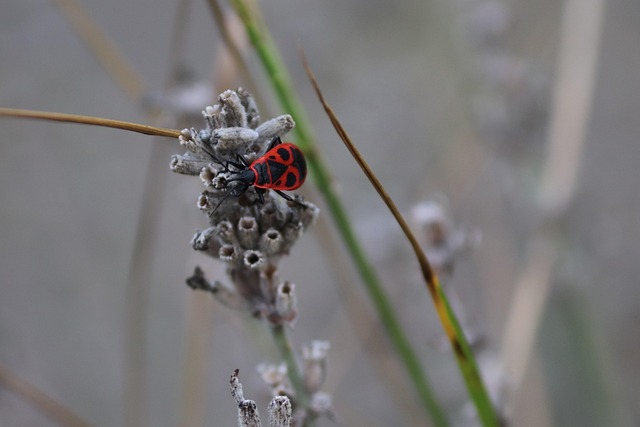In areas like Sheridan where mosquito-borne diseases like West Nile Virus (WNV) are prevalent, effective residential mosquito control is crucial for public health. Implementing integrated pest management (IPM) strategies by property managers involves eliminating standing water, regular treatments, and promoting hygiene to reduce mosquito populations. Collaborating with local authorities ensures access to the latest resources. These measures create a safer environment, preventing WNV transmission and fostering a healthier community.
In Sheridan, the presence of the West Nile Virus poses a significant risk to commercial properties and their occupants. This article delves into comprehensive strategies to combat this concern, focusing on both residential and commercial aspects. We explore how implementing robust mosquito control measures can effectively reduce the virus’s impact. By understanding the disease’s spread and adopting proactive pest control programs, businesses can ensure a safer environment for employees and visitors alike, fostering a healthy and productive workspace in light of these health risks.
- Understanding West Nile Virus and Its Impact on Commercial Properties
- Implementing Effective Residential Mosquito Control Strategies
- Commercial Pest Control Programs: Proactive Measures for Disease Prevention
Understanding West Nile Virus and Its Impact on Commercial Properties

The West Nile Virus (WNV) is a significant concern for commercial property managers, particularly in areas like Sheridan where mosquito-borne diseases are prevalent. This virus, primarily transmitted through the bite of infected mosquitoes, can have severe consequences for both human health and business operations. With its potential to cause neurological disorders and even death, WNV poses a substantial risk to employees and visitors on commercial properties.
Implementing effective residential mosquito control measures is crucial to prevent the spread of WNV. Sheridan’s urban environment, with its buildings, parks, and water bodies, provides ideal breeding grounds for mosquitoes. By adopting integrated pest management strategies, property managers can reduce mosquito populations and create a safer, healthier space. This includes eliminating standing water, implementing regular pest treatments, and promoting good hygiene practices among occupants to minimize the risk of WNV infection.
Implementing Effective Residential Mosquito Control Strategies

Implementing effective residential mosquito control strategies is crucial for preventing the spread of diseases like West Nile Virus in Sheridan. Property managers and homeowners alike should adopt integrated pest management (IPM) techniques that combine chemical treatments, environmental modifications, and biological controls. By reducing standing water—a primary breeding ground for mosquitoes—and maintaining proper drainage, residents can significantly decrease mosquito populations. Additionally, installing screens on windows and doors, using mosquito nets, and treating outdoor living spaces with approved insecticides can offer further protection.
Regular monitoring and rapid response are key to successful residential mosquito control. Property owners should inspect their surroundings for potential breeding sites, such as flower pots, buckets, or old tires, and promptly eliminate them. Collaborating with local health departments and pest control professionals ensures access to the latest information and resources regarding West Nile Virus prevention in Sheridan. These measures, when implemented consistently, can create a safer environment for residents and help mitigate the risk of mosquito-borne disease transmission.
Commercial Pest Control Programs: Proactive Measures for Disease Prevention

Commercial Pest Control Programs play a pivotal role in proactive disease prevention, especially for mosquito-borne illnesses like West Nile Virus. In areas like Sheridan, where residential properties are abundant, implementing effective mosquito control strategies is essential to safeguard both residents and businesses. These programs focus on integrated pest management (IPM) techniques that go beyond mere reactionary measures. By combining various methods such as habitat manipulation, chemical applications, and biological controls, commercial pest control services can significantly reduce mosquito populations.
For instance, targeted treatments in hard-to-reach areas around buildings, ponds, and water sources can disrupt breeding cycles. Additionally, residential mosquito control strategies can be tailored to prevent the spread of West Nile Virus by eliminating standing water where mosquitoes thrive. Proactive measures not only mitigate health risks but also contribute to a more sustainable environment, fostering a healthier community overall.
Pest control programs, especially those focusing on residential mosquito management, are vital for commercial property owners in Sheridan. By implementing proactive measures and effective strategies, such as comprehensive pest control plans tailored for the local ecosystem, businesses can protect their premises from mosquito-borne diseases like West Nile Virus. This multi-faceted approach not only ensures a safer environment for employees and customers but also enhances the overall reputation of the commercial space. Additionally, staying proactive in pest prevention can help avoid costly repairs and legal issues associated with pest damage.
